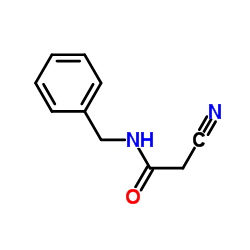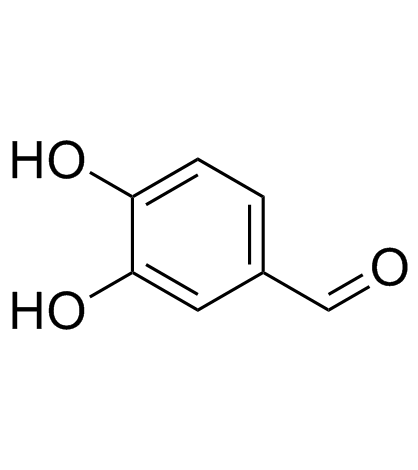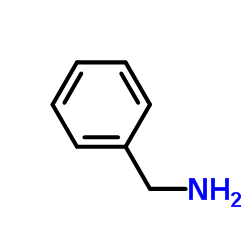133550-30-8
| Name | Tyrphostin AG 490 |
|---|---|
| Synonyms |
N-Benzyl-2-cyano-3-(3,4-dihydroxyphenyl)acrylamide
(E)-N-benzyl-2-cyano-3-(3,4-dihydroxyphenyl)prop-2-enamide (E)-N-Benzyl-2-cyano-3-(3,4-dihydroxyphenyl)acrylamide Tyrphostin B42 (2E)-N-Benzyl-2-cyano-3-(3,4-dihydroxyphenyl)acrylamide MFCD00209833 2-Propenamide, 2-cyano-3-(3,4-dihydroxyphenyl)-N-(phenylmethyl)-, (2E)- AG490 AG-490 |
| Description | AG-490 is a tyrosine kinase inhibitor that inhibits EGFR, Stat-3 and JAK2/3. |
|---|---|
| Related Catalog | |
| Target |
EGFR Stat-3 |
| In Vitro | AG490 inhibits the activation of Stat-3 by selectively blocking JAK2. AG490 is used to selectively inhibit JAK/Stat-3 activation. At a dose of 10 μM, Stat-3 phosphorylation is decreased by >95% and cell viability is maintained. AG490 at a dose of 10 μM results in >95% decrease in pStat-3 in EGF-stimulated A431 cells with no effect on Stat-3 mass[1]. AG-490 is a potent inhibitor of the JAK3/STAT, JAK3/AP-1, and JAK3/MAPK pathways and their cellular consequences. AG-490 abolishes IL-2-inducible [3H]thymidine incorporation in a dose-dependent manner, displaying an IC50 of 25 μM. AG-490 potently inhibits IL-2-mediated proliferation in T cells, results distinct from previous studies that showed this agent induced apoptosis in ALL cells while exerting apparently no effects on the growth of mitogen-stimulated normal T cells[2]. |
| In Vivo | AG490 significantly inhibits the development of type 1 diabetes (T1D) (p = 0.02, p = 0.005; at two different time points). Monotherapy of newly diagnosed diabetic NOD mice with AG490 (1 mg/mouse) markedly results in disease remission in treated animals (n=23) in comparision to the absolute inability (0%; 0/10, p=0.003, Log-rank test) of DMSO and sustained eugluycemia is maintained for several months following drug withdrawal[3]. AG490 (1-10 µg) significantly attenuates ʎ-carrageenan-induced thermal hyperalgesia in a dose-dependent manner. AG490 also reduces mechanical hyperalgesia[4]. |
| Cell Assay | A colorimetric cell proliferation assay is performed using the CellTiter 96 kit. Briefly, A431 cells are plated in 96-well plates (2000 cells/well) and cultured in DMEM/HAM's F-12 supplemented with 10% FCS for 24 h. Cells are incubated in serum-free media for 24 h. EGF (10 ng/mL) is added to all wells. Tyrphostin AG1478 (0.25 mM) and AG490 (10 mM) are added alone or in combination and the culture is incubated for the appropriate time. Medium is aspirated and CellTiter 96 Aqueous One Solution Reagent (20 μL) is added to each well. The plates are incubated at 37°C for up to 1 h and absorbance recorded at 490 nm using a 96-well plate reader. Data are derived from at least three independent experiments (in triplicate) for the both single agents and combination studies. IC50 values for Tyrphostin AG1478 (EGFR inhibitor) and AG490 (JAK/STAT inhibitor) are determined. The growth inhibitory effects of the combination are quantified using the Calucsyn software program[1]. |
| Animal Admin | Mice[3] Female NOD/LtJ, NOD.Scid, and BALB/c mice are used. One vial of compound containing 5 mg of AG490 is injected into5 mice (1 mg/mouse) via the i.p route. The control groups are receive the same volume of the vehicle under the same regimens and conditions. Rats[4] A total of 28 Male Sprague-Dawley rats (250-300 g) are used. The experiments are performed in rats 48 h after ʎ-carrageenan injection. A total of 4 groups (n=6) of rats are randomly included in the dose-response study. Group 1 is the vehicle control, which receive 100 µL i.pl. injection of 3.5% DMSO in saline. Groups 2-4 are injected with 3 different doses of AG490 (1, 5 or 10 µg). To study the effects of naloxone on AG490-induced antinociception, an additional group of rats (group 5; n=4) is observed. Group 5 is co-administered with AG490 (10 µg) and Naloxone (10 µg). The drugs are administered i.pl. in a volume of 100 µl. As reported earlier, the in vivo pharmacological effects of AG490 are observed 4 h after treatment. Thus, the behavioral tests are performed before (baseline assessment) and 4 h after treatment. First, the rats are subjected to the thermal hyperalgesia test; 10 min later, the paw pressure test is performed on the same set of rats. All the experiments are performed between 8:00 a.m. and 2:00 p.m. to reduce the confounding influence of diurnal variations, and all the procedures are performed in a blinded fashion. |
| References |
| Density | 1.3±0.1 g/cm3 |
|---|---|
| Boiling Point | 615.2±55.0 °C at 760 mmHg |
| Melting Point | 215°C(lit.) |
| Molecular Formula | C17H14N2O3 |
| Molecular Weight | 294.305 |
| Flash Point | 325.9±31.5 °C |
| Exact Mass | 294.100433 |
| PSA | 93.35000 |
| LogP | 2.11 |
| Vapour Pressure | 0.0±1.8 mmHg at 25°C |
| Index of Refraction | 1.679 |
| Storage condition | −20°C |
| Water Solubility | ethanol: 5 mg/mL |
| Symbol |


GHS06, GHS09 |
|---|---|
| Signal Word | Danger |
| Hazard Statements | H301-H400 |
| Precautionary Statements | P273-P301 + P310 |
| Hazard Codes | Xi: Irritant; |
| Risk Phrases | R36/37/38 |
| Safety Phrases | 26-36 |
| RIDADR | UN2811 - class 6.1 - PG 3 - EHS - Toxic solids, organic, n.o.s., HI: all |
| WGK Germany | 1 |
| RTECS | UC6316197 |
| Packaging Group | III |
| HS Code | 2926909090 |
|
~81% 
133550-30-8 |
| Literature: Gazit, Aviv; Osherov, Nir; Posner, Israel; Yaish, Pnina; Poradosu, Enrique; et al. Journal of Medicinal Chemistry, 1991 , vol. 34, # 6 p. 1896 - 1907 |
|
~% 
133550-30-8 |
| Literature: Journal of Medicinal Chemistry, , vol. 42, # 17 p. 3412 - 3420 |
| Precursor 3 | |
|---|---|
| DownStream 0 | |
| HS Code | 2926909090 |
|---|---|
| Summary | HS:2926909090 other nitrile-function compounds VAT:17.0% Tax rebate rate:9.0% Supervision conditions:none MFN tariff:6.5% General tariff:30.0% |


